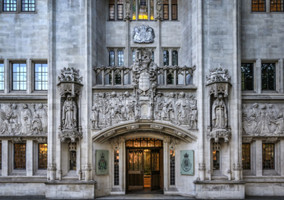Charities that are involved in campaigning, advocacy or political activity often come under greater scrutiny as their work can divide public opinion and attract media attention. Trustees have a duty to uphold their charity’s reputation, and reputational risk or damage to reputation will feature prominently on these charities’ risk registers.
The level of risk depends on factors including the type of activities undertaken, support for controversial or political topics, high profile patrons associated with the charity, and perceived association with local groups or international charities carrying out separate activities under the charity’s name.
However, despite the risk, campaigning or political activities are often valuable and can be an important way for a charity to have its voice heard and initiate change. In many cases, these risk factors increase awareness and public contributions and are therefore to the charity’s benefit.
Environmental and animal welfare organisations in particular are often involved in campaigning and protests against government policies. However, this is often carried out by local groups or notfor-profit organisations rather than the charitable arm of these organisations. The charitable activities are often focused on championing scientific research and educating people to have a better understanding of issues faced. The distinction between these charities activities and the activities of the wider network is an important message to communicate to supporters.
Is it legal for charities to participate in politicised campaigning?
The definition of political activity in charity law is any activity that aims to promote or oppose a change in the law or government policy. Charity law dictates that an organisation cannot be charitable if it, or it’s trading subsidiary, has the sole purpose of being political. Charities also cannot support a particular political party or candidate, even though they may be champions for their cause. However, charities can support political activities if they are supporting a policy that would benefit the charity’s aims. Trustees must thoroughly consider the benefits and risks of participating in such activities to ensure the campaign or activity supported is closely aligned with the charity’s purposes and is beneficial.
What should charities be doing to help protect their reputation?
For charities that rely on public donations and grants to fund their activities, reputational damage can often have a significant impact.
Clear messaging is vital. Frequently reputational damage is a result of public perception and not the quality of governance, so it is paramount that messaging is concise, clear and consistent across day-to-day marketing and within the annual statements to dispel any misinterpretations that could end up in the press or lead to a Charity Commission inquiry.
The trustees’ report
The trustees’ report in the financial statements is a wise place to start and is an opportunity for trustees to put forward the message they want to convey to supporters and stakeholders. It can clearly explain the activities and achievements of the year, and justify any contentious areas if required. It can also be a way to attract supporters or volunteers and build awareness of the charity’s purpose and aims.
Grantmaking to non-charities
The Charity Commission guidance on grantmaking to non-charitable organisations will be relevant to charities with separate campaigning arms. It covers restrictions on what can be funded and how those decisions are made and carried out, ultimately highlighting the importance of good governance. The charity must take reasonable steps to assess the risk and perform due diligence on the grantee, as well as include appropriate terms and conditions in grant agreements and sufficient monitoring arrangements in place to ensure the charity’s funds have been spent in line with its purpose.
Reporting on grantmaking in the trustees’ report can make it easy for readers to see what the monies granted were intended to achieve. Externally verified information should be made available to stakeholders as much as possible.
Documenting decisions
Documentation of decisionmaking is also key to protect reputation, trustees should be able to demonstrate their process and that they have considered the risks and rewards required to make an informed decision in the best interests of the charity. If a complaint is made to the Charity Commission regarding the activities of a charity, the Commission will look closely at this documentation to determine if due diligence was completed.
Charlotte Williams is a senior manager at haysmacintyre
Related articles











